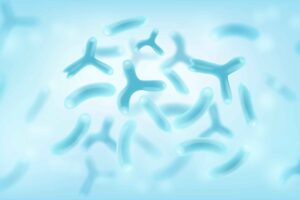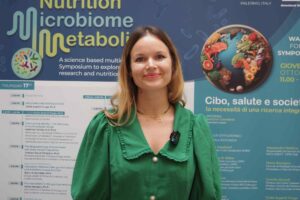Pediatrics
Pneumology, Pediatrics
The findings of a recent study highlight the importance of early-life gut microbes in shaping lung health and add to evidence that microbiota composition can influence asthma risk.
Pediatrics
The gut microbiota evolves throughout early life, especially during key transitions phases such as weaning.
Gastroenterology, Pediatrics
Researchers have developed new tools to better understand the role of Bifidobacterium breve, revealing its competitive growth strategies and potential for supporting the immune system.
Pneumology, Gastroenterology
Delayed microbiota maturation in infants with cystic fibrosis could contribute to disease complications, highlighting potential therapeutic targets.
Gastroenterology, Gynecology
Mice born to mothers exposed to Akkermansia muciniphila during pregnancy showed improvements in stem cell activity.
Gastroenterology, Neuroscience
A study revealed a link between gut microbiota composition and brain development in preterm infants, suggesting that specific bacteria and their metabolites can influence neurodevelopment.
Pediatrics, Otolaryngology
The findings suggest that the microbial communities inhabiting an infant’s nose and throat can play a role in the severity of RSV infections.
Gastroenterology, Pediatrics
Clara Delaroque, from Institut Pasteur (France), emphasizes the critical interplay between early-life microbiota and host health, specifically how the use of common food additives impacts the susceptibility to diseases later…
Gastroenterology, Pediatrics
The findings suggest that the composition of the gut microbiota in early life is not a key factor in obesity risk.
Gastroenterology, Pediatrics
The findings highlight the importance of maintaining a healthy microbiota after EEN and suggest that personalized dietary approaches can help induce remission for children with Crohn’s disease.











